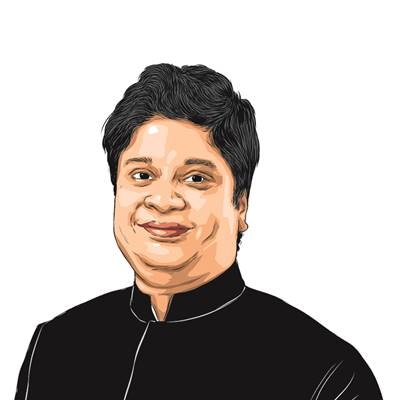Opinion Where governments fail to tread
What Slumdog Millionaire can tell us about the virtues of free market capitalism
We all now know that globalisation and free market capitalism are going through their toughest period in many decades. The excess committed by a few over-adventurous investment bankers in the West has triggered a fierce backlash against globalisation and the free market economy.
At one level this is understandable everyone is hurting as growth has tumbled not only in the West but also in emerging economies like India. At another level,the backlash is dangerous because globalisation and free markets are about much more than complex finance. And any rolling back of the basics of the free market economy or the basics of globalisation which seems to be beginning with mass nationalisations,protectionism and parochial nationalism will see us all worse off than we are now.
In many ways,the success of Slumdog Millionaire reminds us of all that is good about globalisation and free markets. Slumdog is a truly multinational film a largely British-made film,based on an Indian story,with Indian actors,some Indian technicians,distributed by a major US production house and which swept box offices and award nights across many countries. Globalisation is ultimately about moving beyond national boundaries to tap resources,talent and markets across the world. That makes the best economic sense,and thats how we get superior products for our consumption. Even films made in India are now hiring foreign talent,especially on the technical side to improve their product. Thats a good thing. Similar logic applies to firms and universities they must bring in the best talent across borders. Thats why any restrictions on work visas,in any country,are a bad thing.
If the economics doesnt convince you,think about that other virtue of free markets their ability to dissolve away parochial,narrow identities,the sort of identities which tend to raise their ugly head in troubled times,especially in a country like India.
The cast of Slumdog Millionaire was an eclectic group of different nationalities,classes,religions etc,but those differences melt away as audiences and award committees judge everyone by performance not social origins.
To delve deeper,consider one of the many virtues of the Indian film industry its supposedly secular being. It is the one field where Muslims in particular,but also other minorities command an equal footing with members of the majority community. There was a time in the 1950s and 1960s when prominent Muslims in Hindi films had to change their name (Yusuf Khan for example became Dilip Kumar). But to be a Khan now (whether Shah Rukh,Aamir,Salman,Saif and now Irrfan) is to be a brand to reckon with.
Bollywoods secularisation over the years interestingly,has little to do with the constitution or with government action,the supposed vanguards of Indian secularism. Instead,it has all to do with the free market which is the driving force of the Indian film industry. So,if Khan or Rahman set the cash registers rolling,all their other identities take a back seat. Even the most bigoted of Indians would rarely raise a finger of suspicion on the powerful minorities of Bollywood. Khan power,or Rahman power,is the power of the market which ultimately dilutes their other identities. It is probably not just a coincidence that the rise of the Khans has accompanied the liberalisation and globalisation of the Indian economy.
Jawaharlal Nehru thought about the importance of diluting narrow identities all those years ago,but underestimated the power of markets in diluting identities and overestimated the role of development led by the state. That is perhaps why Muslim film personalities changed their names under the umbrella of Nehruvian secularism,something they no longer do in arguably less secular times.
The Indian state still struggles to rid itself of identity politics if anything, such discourse has become stronger now than in Nehrus time. And unfortunately,our political classs talk about empowerment is still dominated by the identity-entrenching ideas of quotas and reservations rather than in the identity-diluting role of markets.
The plain fact is that democratic government which is systemically better than all other forms of government inevitably panders to narrow but powerful interests to gather votes. That is why its risky to allow governments to take greater control of the economy or our lives efficiency and well-being are unlikely to be the guiding objectives of government action. And that is why,despite the current crisis,we must still stand up for the basic principles of free markets and globalisation while continuously questioning the encroachment of governments (especially if the encroachment is longer than temporary) into spheres of life that are best left to the private sphere.
dhiraj.nayyar@expressindia.com


